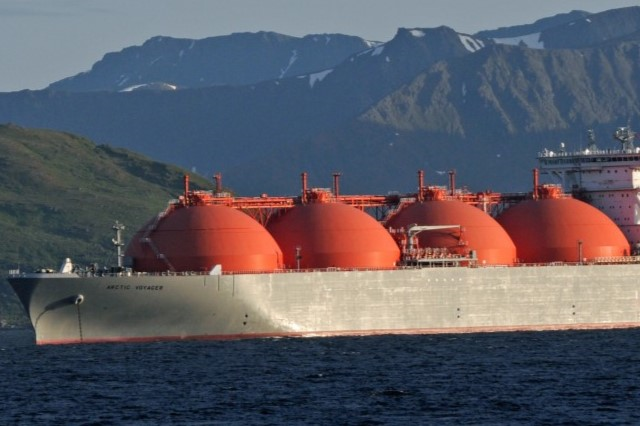News Details

New US Maritime Regulations Would Kill The Industry Warns Industry Leaders
The U.S. liquefied natural gas (LNG) sector has raised concerns with the Trump administration over newly introduced maritime regulations, cautioning that the industry cannot meet the requirement to shift to U.S.-flagged ships without significant disruption, the Financial Times reported Sunday.
In letters sent this week by the American Petroleum Institute, industry leaders warned that the rules, unveiled by U.S. trade representative Jamieson Greer on April 17, could jeopardize a $34 billion annual export market, which is a key pillar of President Trump’s “energy dominance” strategy.
The new measures, intended to strengthen U.S. shipbuilding while putting pressure on China’s trade practices, impose levies on Chinese-built ships docking at U.S. ports. However, U.S. energy exporters argue that these tariffs would sharply escalate their shipping costs.
Although the LNG industry previously secured a three-year grace period to delay compliance, the rules still require companies to transition to US-built and US-flagged ships over a phased 22-year timeline. Failure to comply could result in the suspension of export licenses.
Difficult deadline
Despite these concessions, API’s letters to the secretaries of energy and interior stress that the sector has no realistic way to meet the deadline. According to people familiar with the correspondence, the US currently lacks both LNG-capable ships and the shipyard capacity needed to build them in time for the 2029 milestone.
API warned that enforcing these rules would erode U.S. leadership in the global LNG market and weaken America's broader standing as an energy superpower. The organization also expressed concern that future administrations might weaponize similar trade mechanisms to halt energy exports.
Additionally, industry representatives are asking the administration to exempt shipments of crude oil, refined petroleum products like gasoline, and liquefied petroleum gas (LPG) from the new maritime tariffs, citing risks to supply chains and competitiveness.
After surpassing Australia in 2023, the United States now leads the world in LNG exports, shipping 11.9 billion cubic feet a day, enough to meet the combined natural gas demand of Germany and France. The sector aims to double its exports by the end of the decade.
The introduction of tariffs on Chinese-built, owned or operated vessels has spurred widespread lobbying across US industries, from agriculture to energy, all warning of potential spikes in freight costs.
Under the new rules, vessel owners and operators from China will face fees of $50 per net ton starting in 180 days, with increases of $30 per net ton each year for the next three years. Operators from other countries using Chinese-built ships would pay lower fees.
So far, the oil and gas industry, a major supporter of Trump’s election campaign, has been successful in negotiating exemptions from other trade penalties, such as tariffs on oil and gas imports, the Financial Times reported.

